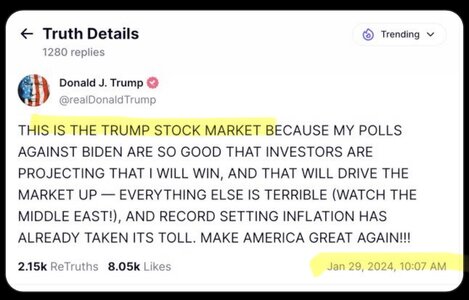The Mounting Case Against U.S. Stocks
Worries about a trade war, signs of flagging growth and splinters in the AI trade are pressuring U.S. shares
GIFT LONK

—>
https://www.wsj.com/finance/stocks/...9d?st=inq7JE&reflink=mobilewebshare_permalink
“
A new round of recession fears
rattled markets Monday, sending the Dow Jones Industrial Average down more than 1000 points and
eroding Wall Street consensus that U.S. stocks would be among this year’s biggest winners.
Many investors had anticipated that American exceptionalism—the perceived advantages the U.S. has over other countries, such as its economic strength and technological innovations—would help drive another year of robust stock gains.
But worries about
a trade war, signs of flagging growth and splinters in the artificial-intelligence trade have taken some of the shine off that optimism. President Trump over the weekend
refused to rule out a recession this year, setting off a fresh wave of declines in U.S. stocks. The S&P 500 fell 3%, while tech-heavy Nasdaq Composite lost more than 4.5%. Bank stocks slid, along with shares of smaller companies perceived to be sensitive to the economy. Bonds rallied.
“This is the first time we’ve had an administration pretty much say with a straight face… the objectives are going to cause pain,” said Shelby McFaddin, investment analyst at Motley Fool Asset Management.
While the U.S.’s strength is in question, other countries are ramping up efforts to revive their economies. China
has unleashed more stimulus to meet its economic growth target. Germany
announced a spending splurge on its military and infrastructure.
Markets were rattled after Trump’s tariffs on goods from
China, Canada and Mexico took effect, sparking swift retaliatory action. Stocks, bond yields and oil prices tumbled, with investors scrambling to assess the possible implications of a trade war on the U.S. economy. …”

